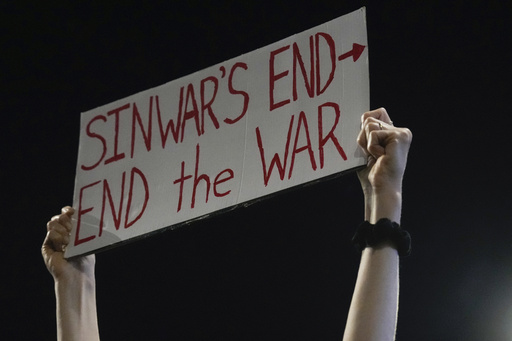
JERUSALEM — Following the recent killing of Hamas leader Yahya Sinwar by Israeli forces in Gaza, families of hostages taken a year ago are urging the government to act swiftly to secure their loved ones’ release. They find themselves in a complex emotional state, oscillating between profound fear and limited hope. Concerns loom that the militants holding their relatives may respond violently to Sinwar’s death, yet there is a belief that Prime Minister Benjamin Netanyahu might seize this opportunity to achieve his objective of dismantling Hamas politically while simultaneously addressing the urgent need to bring hostages home.
“In recent weeks, both Netanyahu and the U.S. indicated that Sinwar was a significant barrier to any negotiations,” stated Ruby Chen, 55, who is the father of Itay Chen, an American-Israeli hostage. “With him out of the way, they should exploit this moment to finalize a deal swiftly.”
Itay Chen, a 19-year-old who enjoyed basketball and had served in the Boy Scouts, was among the approximately 250 individuals taken captive during the assaults on October 7, 2023, which resulted in the deaths of around 1,200 people in southern Israel. Ruby Chen mentioned that military officials have suggested that Itay may have died while in captivity, but he remains uncertain about the truth of that assertion.
The elimination of Sinwar has been a critical objective for Israel’s armed forces since the onset of the conflict between Israel and Hamas. Israeli troops reportedly killed Sinwar in a serendipitous encounter, utilizing a tank shell aimed at a building where he was hiding after a confrontation with soldiers.
Currently, around 100 hostages remain inside Gaza, with roughly one-third of them presumed dead. Efforts to negotiate a ceasefire for their release have repeatedly stalled, resulting in criticism directed at Netanyahu for placing a higher emphasis on military success than on securing negotiations for hostages.
